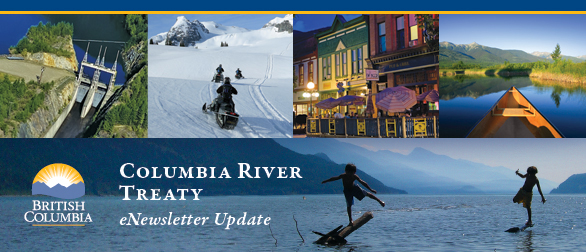Columbia River Treaty
Edition:

What’s Being Talked About in the U.S.?
“What’s being talked about in the U.S.?” This question came up often during the Province’s spring 2012 Columbia River Treaty Review public consultation sessions. The answer is of interest to a lot of people.
The U.S. Entity (Bonneville Power Administration and U.S. Army Corps of Engineers), as part of their Columbia River Treaty Review process, held stakeholder Listening Sessions in Portland, Oregon (June 27), Spokane, Washington (July 9), Boise, Idaho (July 13) and Kalispell, Montana (July 18) to educate and to provide an update on studies and other work underway. The B.C. Columbia River Treaty Review team (Treaty Review team) were there and listened.
In general the U.S. Listening Sessions were attended primarily by government officials, stakeholder groups or professionals with a specific interest in water from the Columbia River - water for power, flood control, irrigation, fish, ecosystem health, and municipal needs.
The Treaty Review team heard many questions about the U.S. Entity’s analyses and their assumptions about how Canada would operate its dams in the absence of the Treaty. There were questions around what Called-Upon flood control post 2024 could look like and about the corresponding effective use requirement for U.S. reservoirs and how this use might negatively affect interests such as fish, ecosystems, irrigation and recreation. There were also questions around the cost-benefit of Called Upon flood control post 2024 and the Canadian Entitlement . Audiences highlighted the need to incorporate climate change into the next iteration of the U.S. Entity’s analyses and voiced concern about water supply, particularly during summer and/or low flow years, and the potential competing needs for fish, irrigation and municipal use.
Lastly, audiences wanted to know “What’s being talked about in Canada?”
The U.S. Entity’s summary of their June/July 2012 Listening Sessions can be found here





















